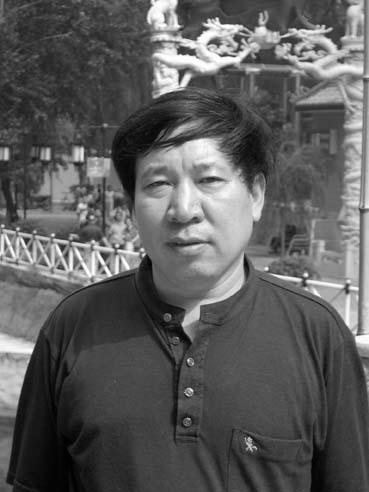Translated by Carlos Rojas
One dusk in early June, in a town deep in the Balou mountains, fourteen-year-old Li Niannian notices something strange about his town. Instead of settling down for the night, the residents start appearing in the streets and fields. There are people everywhere.
Li Niannian watches, mystified. But then he realises the people are dreamwalking, carrying on with their daily business as if the sun hadn’t gone down. And before too long, as more and more people succumb, in the black of night all hell breaks loose.
Set over the course of one night, The Day the Sun Died sets chaos and darkness against the sunny optimism of the ‘Chinese dream’ promoted by President Xi Jinping. We are thrown into the middle of an increasingly strange and troubling waking nightmare as Li Niannian and his father struggle to save the town, and persuade the sun to rise again.
INTERVIEWS and REVIEWS
Electric Lit
Full Stop
Guardian, Jul 18
Guardian, Sept 22 interview
Los Angeles Times
New York Times
Paris Review: Yan Lianke Illuminates Contemporary China
Ploughshares
andThe Day the Sun Died
‘I can think of few better novelists than Yan, with his superlative gifts for storytelling and penetrating eye for truth’
‘This exuberant but sinister fable confirms its author as one of China’s most audacious and enigmatic novelists.’
Yan Lianke is one of the best contemporary Chinese writers.’
‘A master of imaginative satire. His work is animated by an affectionate loyalty to his peasant origins in the poverty-stricken province of Henan, and fierce anger over the political abuses of the regime.’
‘Yan Lianke well deserves to be in the Pantheon of great writers. He has no equal at attacking societal issues or the great Maoist myths in order to turn them into novels so breathtakingly powerful, shot through with black, often desperate, humor.’
‘A powerful, captivating work of art.’
‘This exuberant but sinister fable confirms its author as one of China’s most audacious and enigmatic novelists.’
‘[Yan Lianke’s] confronting, multi-layered novel is hauntingly beautiful.’
‘Deeply satirical, darkly angry, full of disgust for his country’s ruling party and politics, Yan Lianke’s latest is surreal and bizarre, a compelling lecture on the moral degradation he sees in his homeland…Lianke has created a brilliant picture of a country heading into chaos.’
‘Yan’s fable, joining a long lineage of so-called “records of anomalies” in Chinese literature, forces readers to reflect on the side of the world that is “too absurd, too cruel and too unpleasant.” This makes “The Day the Sun Died” a relentless and even brutal experience. Yet its description of a society seized by its worst impulses, enacting the repressed hatreds and nightmarish obsessions of its inhabitants, felt more familiar the more I considered it. Yan’s subject is China, but he has condensed the human forces driving today’s global upheavals into a bracing, universal vision.’
‘The Day the Sun Died bears the largesse and cadence of myth, but it is also the story of a family, told by a simple boy of fourteen. Yan’s physical descriptions can be rich and specific, grounded in realism, but also far-fetched and steeped in surprising metaphor.’
‘Yan has conjured up something both ghastly and unreal, yet only liminally unreal, something that could possibly be real…The writing and translation are both excellent.’
‘Effortlessly blending metaphor and allegory, symbolism and satire, Yan has crafted a distinct literary work of dystopian satire, a blend of bruising bureaucratic critique with a sly postmodern pastiche of realism, absurdism and the grotesque…The novel is a tour de force of language control. Rojas has honored all of Yan’s vertiginous syntax, with its switchbacks and echoes, its rhythms and recursions, inducing a spell like a hypnotist’s watch swinging back and forth, lowering our defenses against its control.’














